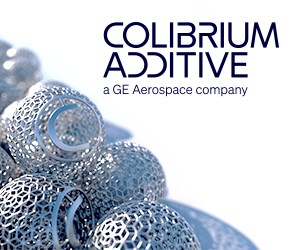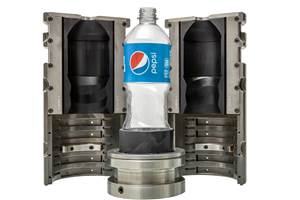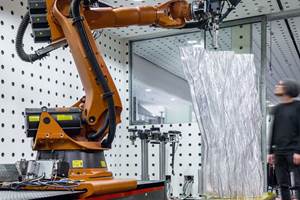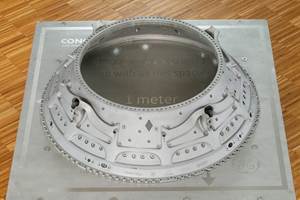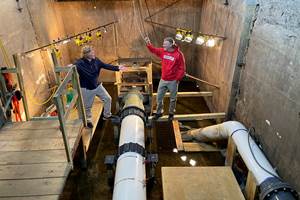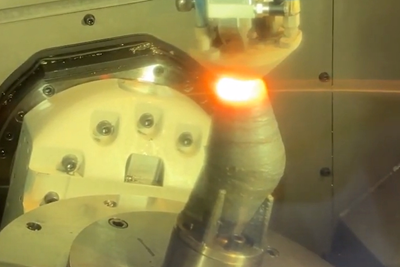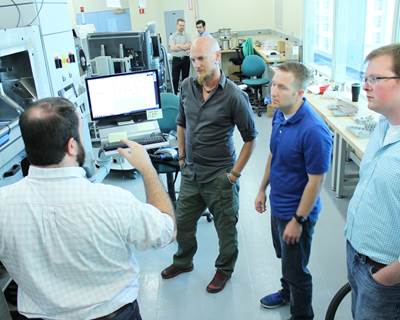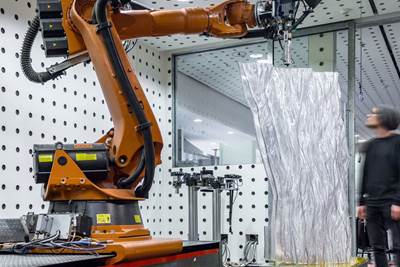Siemens Energy Partners With Seurat to Advance Clean Manufacturing
Seurat Technologies to develop 59 tons of additively manufactured metal components for Siemens Energy turbines.
Seurat Technologies has entered into an agreement to develop 59 tons of additively manufactured metal components for Siemens Energy turbines. Development will ramp up over a six-year period for parts meeting Siemens Energy’s material qualification requirements. The initial focus will be on one part family, with the possibility of increasing volumes to include others in the future.
Manufacturing is one of the largest contributors of greenhouse gas emissions, responsible for 31% of emissions. With the Intergovernmental Panel on Climate Change continuing to sound the alarm on global warming in its recent report, the manufacturing industry has a significant responsibility to reduce its carbon footprint, the companies say. The Biden Administration is also calling for the reduction of industrial emissions, recently unveiling a $6 billion effort to decarbonize industrial manufacturing and accelerate new technologies critical for a winning climate strategy.
Breakthrough technologies such as Seurat’s Area Printing reimagine manufacturing by enabling 3D printing to be competitive to conventional methods in every way (cost, scale and quality), while leveraging 100% renewable green energy. Siemens Energy uses 3D printing to produce a number of components in instances where it provides a more sustainable process and improved economics.
“Siemens Energy is always looking for innovative technologies that can transform the future while creating a more sustainable world,” says Enrique Gonzales Zanetich, Siemens Energy head of venture building. “We’re excited about our future printing high-quality parts with fantastic economies of scale to deliver cost savings. We invested in Seurat Technologies and believe that strengthening our partnership could help to accelerate decarbonization in the industry at scale.”
Siemens Energy has also invested cash in Seurat Technologies through its venture arm, Siemens Energy Ventures. Operating at the intersection of the corporate and startup ecosystems, Siemens Energy Ventures builds, pilots and invests in startups that are developing innovative energy and decarbonization technologies, and business models.
“Seurat’s partnership with Siemens Energy is a major milestone for 3D metal printing and our potential to deliver limitless scalability and cost savings,” says James DeMuth, Seurat CEO and co-founder. “We are proud to be trusted by global leaders who are reimagining manufacturing. Volumes of this order of magnitude significantly move the needle toward greener technologies and unlocking additive manufacturing’s full potential.”
It is said Seurat’s Area Printing can competitively displace some types of traditional manufacturing and reduce greenhouse gas emissions related to waste material, freight, transportation and warehousing. Seurat anticipates mitigating as much as 100 metric tons of CO2 by 2030 and has validated its carbon footprint forecast according to ISO 14064 standards.
“The metal additive manufacturing market increased by more than 20% in 2022 year-over-year and is valued today at about $3.2 billion,” says Dr. Maximilian Munsch, managing partner of strategy consultancy AMPOWER. “The users and suppliers in this market expect success to continue, anticipating similar growth in the coming five years. An important driver is the energy sector. For several years now, the energy industry has efficiently utilized metal 3D printing for the production of turbine components, reaching a high level of maturity. Metal 3D printing has become a crucial enabler technology for innovation to significantly reduce the CO2 footprint throughout the turbine’s lifetime. We expect the demand for such components to grow by 26% annually.”
Seurat is a 3D metal printing provider working to make manufacturing better for people and the planet. “Seurat is a part of an emerging wave of Massachusetts additive manufacturers that are utilizing revolutionary processes, materials and a world-class workforce to dramatically impact global industries, as shown by this new partnership,” says Christine Nolan, director of the Center for Advanced Manufacturing at MassTech, an economic development agency for the Commonwealth of Massachusetts. “Companies like Seurat are what makes Massachusetts the top innovation economy and a global leader in advanced manufacturing.”
- Read how Senvol is commercializing Siemens Energy’s material databases for laser powder bed fusion machines. Although the data was initially intended exclusively for internal use, the company decided to make the data commercially available.
- Learn how Siemens Energy is applying additive manufacturing for power generation and more at an applications center in Orlando, Florida, to support both Siemens Energy power generation systems and external customers.
- Check out this article on Siemens’ efforts to advance additive manufacturing with solutions for energy efficiency, sustainability, part repair and more developing at Siemens’ Charlotte Advanced Technology Collaboration Hub (CATCH) in North Carolina.
Related Content
How Hybrid Tooling — Part 3D Printed, Part Metal Shell — Accelerates Product Development and Sustainability for PepsiCo
The consumer products giant used to wait weeks and spend thousands on each iteration of a prototype blow mold. Now, new blow molds are available in days and cost just a few hundred dollars.
Read More3D Printing Brings Sustainability, Accessibility to Glass Manufacturing
Australian startup Maple Glass Printing has developed a process for extruding glass into artwork, lab implements and architectural elements. Along the way, the company has also found more efficient ways of recycling this material.
Read MoreGE Additive Helps Build Large Metal 3D Printed Aerospace Part
The research is part of an initiative to develop more fuel-efficient air transport technologies as well as a strong, globally competitive aeronautical industry supply chain in Europe.
Read MoreHow Large-Format 3D Printing Supports Micro-Scale Hydropower
There is potential hydroelectric power that has never been unlocked because of the difficulty in capturing it. At Cadens, additive manufacturing is the key to customizing micro-scale water turbine systems to generate electricity from smaller dams and waterways.
Read MoreRead Next
Hybrid Additive Manufacturing Machine Tools Continue to Make Gains (Includes Video)
The hybrid machine tool is an idea that continues to advance. Two important developments of recent years expand the possibilities for this platform.
Read More4 Ways the Education and Training Challenge Is Different for Additive Manufacturing
The advance of additive manufacturing means we need more professionals educated in AM technology.
Read More3D Printing Brings Sustainability, Accessibility to Glass Manufacturing
Australian startup Maple Glass Printing has developed a process for extruding glass into artwork, lab implements and architectural elements. Along the way, the company has also found more efficient ways of recycling this material.
Read More

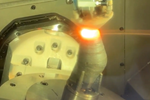
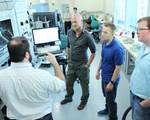


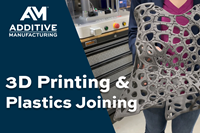
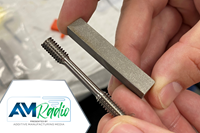
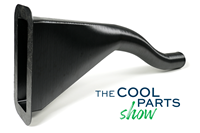


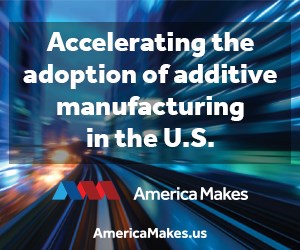
.png;maxWidth=300;quality=90)

